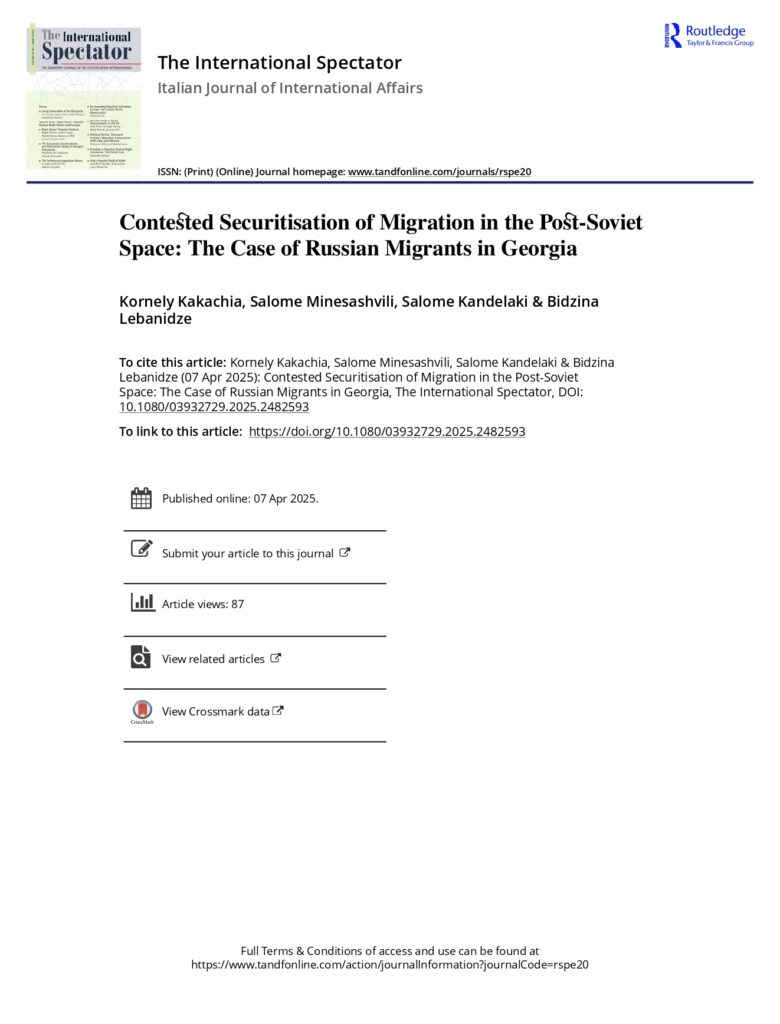ABSTRACT
The Kremlin’s war in Ukraine since February 2022 has triggered an influx of Russian migrants into Georgia, to which elite Georgian groups have responded in a contradictory manner. While the ruling party, Georgian Dream (GD), has presented the migration wave primarily as an economic opportunity, the opposition and
civil society have portrayed the event as a security threat, and demanded an immediate response to stem the flow of Russian migrants. These different responses can be explained by pre-existing polarisation among elite groups over wider foreign policy issues, which leads to the construction of divergent discourses on the influx of Russian migrants. In so doing, Georgian political actors not only identify distinct sources of threats and opportunities, but also strategically deploy these divergent perspectives to further their broader foreign policy objectives. While the ruling party’s desecuritising discourse emphasises economic benefits and a pragmatic engagement with Russia – thereby reinforcing its policy of normalisation – opposition groups securitise the influx to underscore existential threats to national sovereignty and align with a pro-Western agenda. An analysis of these elite (de)securitisation discourses therefore also reveals the discursive strategies of (de)legitimisation employed to support or undermine competing foreign policy stances.
The article has been originally published by the The International Spectator, Italian Journal of International Affairs.

